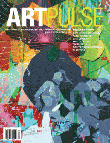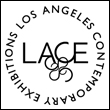« Related Readings
Tactical Biopolitics: Art, Activism, and Technoscience
 Tactical Biopolitics: Art, Activism, and Technoscience. Edited by Beatriz da Costa and Kavita Philip. Cambridge, Massachusetts: The MIT Press, 2008. 536 pages. ISBN 9780262042499
Tactical Biopolitics: Art, Activism, and Technoscience. Edited by Beatriz da Costa and Kavita Philip. Cambridge, Massachusetts: The MIT Press, 2008. 536 pages. ISBN 9780262042499
By Jeff Edwards
We live in the Biological Century, an era in which a staggering proliferation of new developments in bioscience and biotechnology has created the pressing need for clear critical thinking about our collective future. Tactical Biopolitics takes a first big step toward achieving that clarity. The book’s 28 cross-disciplinary essays cover a wide range of topics, including the changing nature of bioethics, the interaction of science with racial and gender politics, the evolving role of amateurs in scientific research, and the future of interspecies relations. The contributors are equally diverse: research scientists, academics, activists, artists, and writers are all given a voice.
The activism implied in the book’s title is a driving force behind much of its content. Taken together, its texts can be read as an extended critique of the neoliberal policies that have radically transformed our lives in recent decades, often for the worse. The historical development of such concepts as biopower (the coercive physical optimization of human beings) and bioparanoia (the use of fear-mongering to sell commodified hygienic practices) coexists with case studies on science and the political status quo, as in a piece by historian Abha Sur and medical student Samir Sur that traces the use of human genome studies in India to reframe traditional caste politics for a new age.
Because the book is at least partly premised on the need for wider dissemination of accurate scientific knowledge to the public at large, the role of artists and writers as a mediating force between the lab and the outside world is examined very closely, sometimes with a harsh eye. A piece by law professor Jacqueline Stevens shows how museum and gallery exhibitions have deployed science-based art to promote visions of corporate-sponsored utopias that have little to no basis in actual lab results. Other chapters examine the usefulness of science documentaries and science fiction for disseminating both genuine scientific knowledge and camouflaged ideology.
There are many reminders throughout Tactical Biopolitics that our view of reality is not as obvious or natural as it may seem. An essay by critical anthropologists Paul Rabinow and Gaymon Bennett points out the cultural embeddedness and historical malleability of ethical systems and urges us to continually revisit the question of what “the good life” means. Later in the book, veterinary ethicist Larry Carbone asks us to consider the possibility of a future ethics that includes the animal world, without embracing a false, empathy-driven anthropomorphism that ignores the differences between animal and human consciousness. The resonance of these two suggestions speaks to a deeper point that animates much of the writing in Tactical Biopolitics: at a time when we have collectively set the stage for earth-shaking environmental and cultural catastrophes, we face a growing need to transcend our current assumptions and envision alternate worldviews. With its broad interdisciplinary approach, Tactical Biopolitics hints that all of us-scientists, artists, activists, and laypeople alike-have a crucial role to play in the creation and realization of such visions.
Jeff Edwards is an arts writer and faculty member in the Visual and Critical Studies program at the School of Visual Arts (SVA) in New York.


































